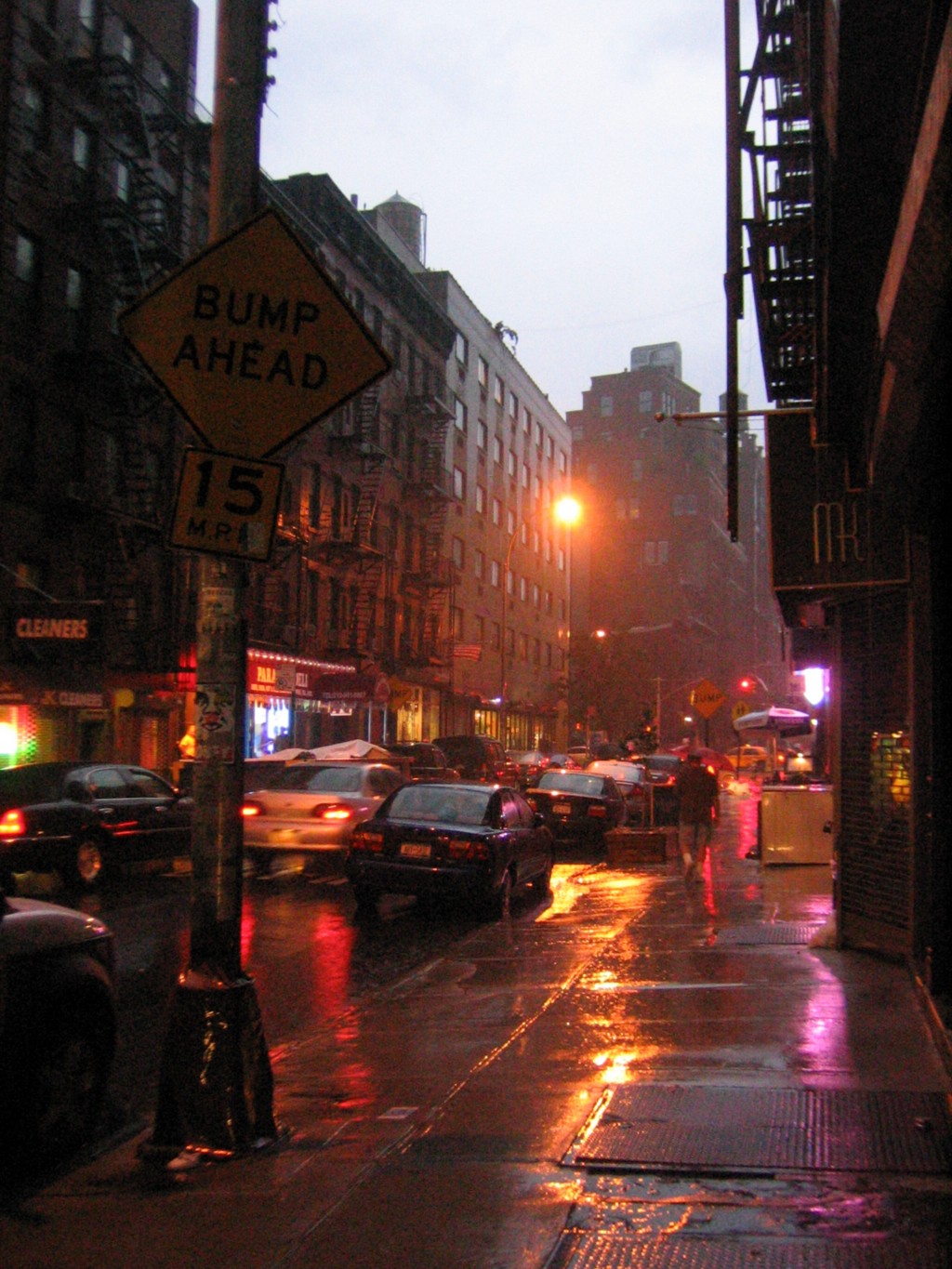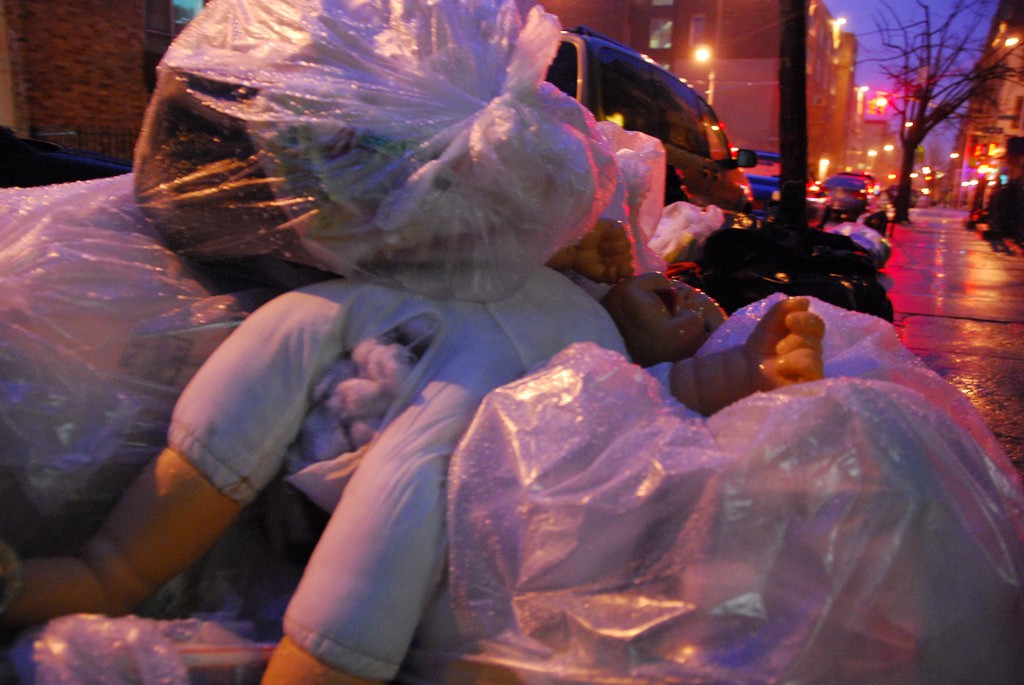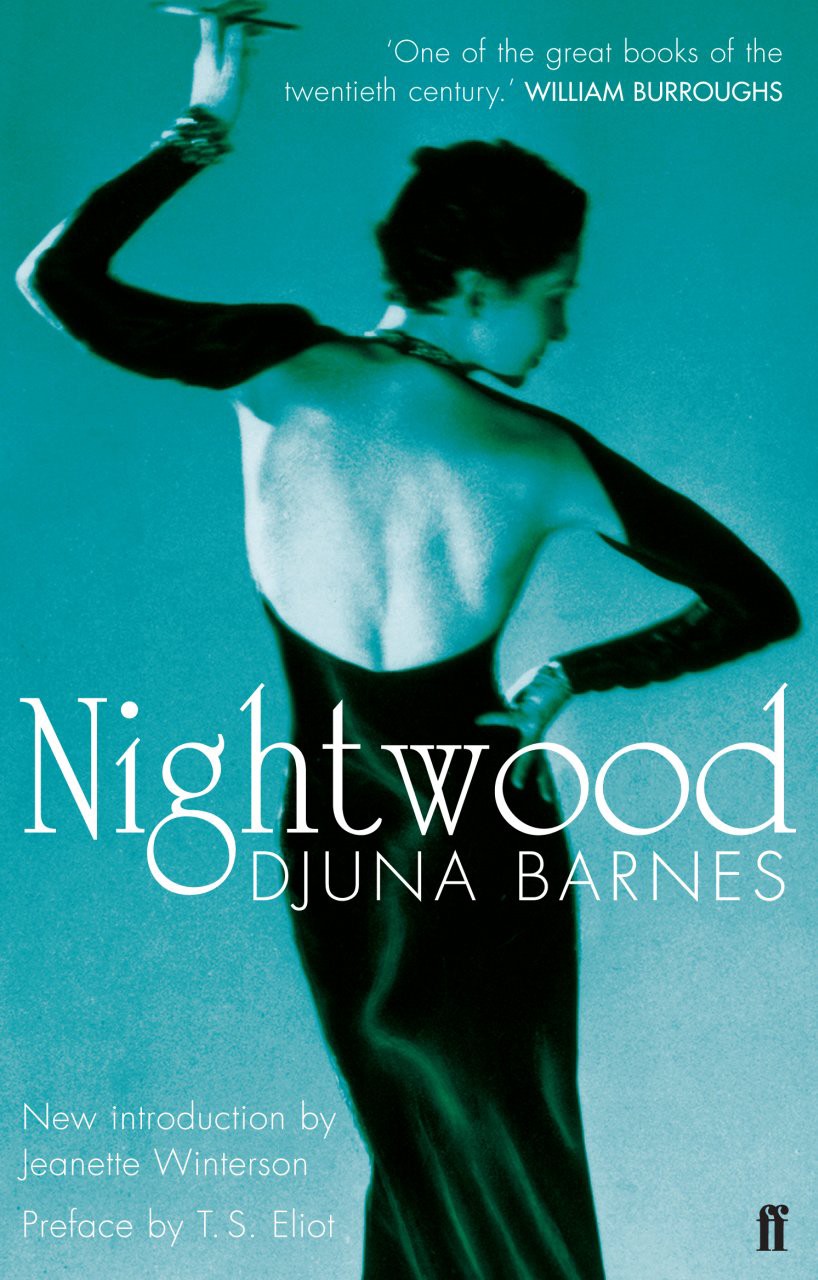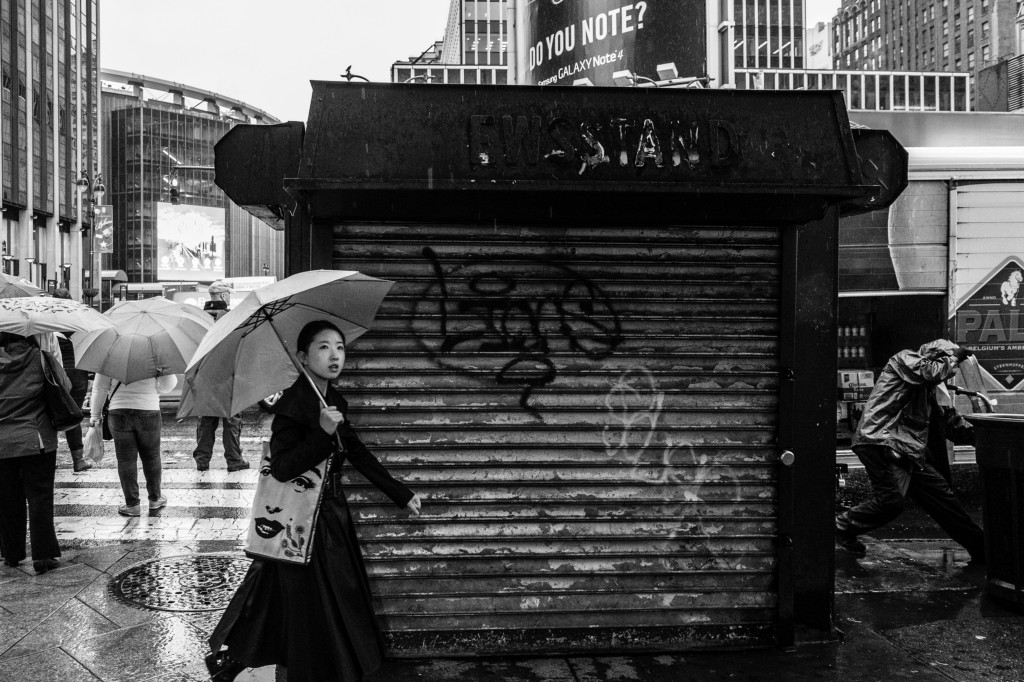A Poem by Justin Jannise
Mascot
Never remove your head
in front of children. That’s the rule.
Friendly, giant, ostracized cartoon,
overstuffed skull. Joystick in hand,
the man who operates the bear has us
shifting our weight on the benches.
Has us turning around for the pretzel’s
warm, bland dough.
He came to us
from underneath the blond streetlamp,
a sewer skunk slippery with mid-century fur.
Like a real animal, he evolved
from cheerleader’s charge
to digital-age antihero, from wheeling
along the string lights of the sidelines
to catapulting, center stage, a mutant
with an axe to grind for our cause.
Is there a skit afoot? A draw? A duel?
A stadium wave for us to throw
ourselves into by staying put?
Justin Jannise studied poetry at the Iowa Writers’ Workshop. His work appears in the Yale Review, North American Review, and Zocalo Public Square. He lives in Houston.
The Poetry Section is edited by Mark Bibbins.
LNRDCROY, "Ooze City"
The weather will finally be as awful as the rest of your life is.

What’s on tap for today? Oh, more rain? More rain forever? Plus a heat advisory through Sunday? Terrific, I’m so thrilled. Let’s just get to the music and try not to dwell on just how depressing the days will be going forward.
Here is a new one from LNRDCROY, whose “I Met You On BC Ferries” was one of 2014’s most lifesaving tracks.
In fact, give how awful today and every day here on out are going to be, I think we could probably use a shot of “I Met You On BC Ferries” right now just to sort of help us keep our heads a little bit above water. Hot, gross water. Enjoy, because your day is probably not going to get much better.
New York City, August 9, 2016

★★★ A cloud shaded the first block of the walk to the subway, as if things might not be bad, but full sun dogged the way down the steps. It was hotter and drier by the middle of the day. A burst of breeze broke the stillness, fluttering skirts and throwing dirt at the eyes. The afternoon train smelled awful, not from anyone in particular but cumulatively, and the people were blocking one another without squeezing in tightly enough to make room. The late light raised warm colors from brick and stone.
Top 10 Brooklyn Baby Names, 2017
Sneer if you want but the long tail on this is going to be amazing.

10. Hatauque (pronounced “hot take”)
9. Story
8. Oats
7. Trahnque (pronounced “tronc”)
6. Dad
5. [NEED GOOD POKEMON JOKE TO MAKE UP FOR TRONC BIT DO NOT POST WITHOUT]
4. Cupping
3. Harambe LaCroix
2. 69
1. Nice
The First Trans Woman in Western Fiction
‘Nightwood’s Dr. Matthew O’Connor was gender dysphoric.
When Djuna Barnes’s novel Nightwood was published in 1936, writing a book that seriously explored lesbian love was a radical act. Thanks to an introduction by its editor T.S. Eliot, the manuscript managed to slip through the censor’s office unscathed. But Nightwood isn’t just a foundational text in lesbian literature; it also contains one of the earliest descriptions of gender dysphoria in western fiction, and possibly the first trans woman to ever appear on the page. In a series of heartbreaking passages, the unlicensed gynecologist Dr. Matthew O’Connor describes being trapped inside a man’s body. Long before words like transgender and gender dysphoria even existed, Djuna Barnes put a trans woman at the heart of her dark masterpiece. Yet like so many trans people today, O’Connor has always been dismissed as a garden variety crossdresser, or worse.

T.S. Eliot said that Barnes was a writer of undeniable genius but questionable talent, while Barnes herself said she was the most famous unknown of the twentieth century. When Barnes began writing the novel she was already a notorious American expatriate living in Paris, and the novel portrays real queer women from the time, including Barnes. Nightwood was born out of the Left Bank literary scene: Paris in the twenties, the Lost Generation. The novel has been called a “cult guide to the homosexual underground night world of Paris that Barnes shared with her lover, Thelma Wood,” depicted in the novel as the barbaric Robin Vote.
If you’ve ever fantasized about writing a tell-all Swiftian novel about your ex, then Djuna Barnes has done you one better. In the biography Djuna, Phillip Herring reported that at least two of Barnes’s close friends physically assaulted her for the way she portrayed them in the book. In the novel’s closing chapter, Robin debases herself by performing a sex act on a dog in front of her rejected lover. Or maybe she doesn’t? It’s that kind of novel.

The book has a loose plot that follows Robin as she ruins one lover’s life after another. While Robin is Thelma’s avatar, Barnes wrote herself into the novel as Nora Flood. Nora, half-mad and lovesick, stalks Robin as she cruises Parisian cafes after dark, until Robin finally abandons Nora for another woman. And whenever Robin wrecks someone, they turn to the doctor for solace.
In one chapter, Nora bursts into Dr. O’Connor’s apartment in the dead of night, only to find him lying in bed wearing rouge, a blonde wig, a woman’s nightgown, and clearly expecting somebody else. After an awkward beat, Nora simply says, “Doctor, I have come to ask you to tell me everything you know about the night.”
And so the doctor launches into a bizarre monologue about how a true connoisseur can tell where a man comes from by the size and excellence of his cock (“and at the Bastille, and may I be believed, they come as handsome as mortadellas slung on a table”). But that comic relief (incredibly obscene for the time) segues into lament:
“‘And do I know my Sodomites?’ the doctor said unhappily, ‘and what the heart goes bang up against if it loves one of them, especially if it’s a woman loving one of them. What do they find then, that this lover has committed the unpardonable error of not being able to exist — and they come down with a dummy in their arms. God’s last round, shadow-boxing, that the heart may be murdered and swept into that still quiet place where it can sit and say: ‘Once I was, now I can rest.’”
And earlier:
“In the old days I was possibly a girl in Marseilles thumping the dock with a sailor, and perhaps it’s that memory that haunts me. The wise men say that the remembrance of things past is all that we have for a future, and am I to blame if I’ve turned up this time as I shouldn’t have been, when it was a high soprano I wanted, and deep corn curls to my bum, with a womb as big as the king’s kettle, and a bosom as high as the bowsprit of a fishing schooner? And what do I get but a face on me like an old child’s bottom — is that a happiness, do you think?
…
“God, I never asked better than to boil some good man’s potatoes and toss up a child for him every nine months by the calendar. Is it my fault that my only fireside is the outhouse? And that I can never hang my muffler, mittens and Bannybrook umbrella on anything better than a bit of tin boarding as high as my eyes, having to be brave, no matter what, to keep the mascara from running away?’”
“We can’t use phrases like gender dysphoria without a huge asterisk,” Dr. Chris Freeman, Board Member of the One Archives Foundation and professor of English and Gender Studies at the University of Southern California, said over the phone. He added, “In terms of the cultural milieu Djuna Barnes was writing about, a lot of people were living very gender nonconforming lives.” When pressed, Freeman said, “You can certainly think of that character, Dr. O’Connor, as groundbreaking. If not the first, definitely the most fleshed out character. What today would be called gender dysphoric.”

The feminist professor Shari Benstock wrote Women of the Left Bank: 1900–1940 in the mid eighties, just as the second wave was dying down. Part history, part literary criticism, the book compiles a lot of the analysis surrounding Nightwood. Yet while Barnes’s closest friends believed she succeeded in giving the doctor a soul, like so many others, Benstock sees the doctor as a pathetic, predatory crossdresser (eventually comparing the doctor to Hitler).
“And must I, perchance, like careful writers, guard myself against the conclusions of my readers?” — Dr. Matthew O’Connor
In a 1990 essay, the British poet Gregory Woods gives us more of the same:
“But he is, above all, an untrustworthy informant, far too much of a man: deceitful in bed, when dragged-up to be penetrated by men, and deceitful at work, when penetrating women under false pretenses. Shari Benstock speaks of how the ‘gossipy and garrulous’ doctor ‘parodies woman’s language, steals her stories and her images in order to teach her about herself’ (Benstock, 1987, p.266). The problem is that, however sincere and convincing his drag, it still conceals the phallus; however brightly lipsticked his mouth, it still contains a patriarchal tongue.”
You don’t have to go searching through Reagan-era literary criticism to find people who believe that trans women are just gay men in women’s clothes. Today, the idea that trans women are perverts in drag acting out an elaborate plot to violate women is a matter of official policy in some states. Yet as Nightwood shows, there have always been people whose identity couldn’t be contained by the gender binary. Trans people have always existed, and we have always punished them for it.
“The gender binary has been one of the most dominant fictions in modern times, and it is a fiction,” Dr. Freeman said. “And finally the fiction is undeniable, finally this idea that masculine equals masculine and feminine equals feminine, is just completely untrue. And you don’t have to look hard in history to see all the places where this didn’t work. That this whole lineup of a one to one gender binary has just never been true.”

During the interwar period when Barnes wrote Nightwood, anyone whose sexuality or gender identity didn’t fit into the heteronormative binary was considered an “invert.” Richard von Krafft-Ebing was a pioneering sexologist who came up with the theory of sexual inversion. The theory was radical, but not so sophisticated as to make a distinction between gender and sexuality.
Unlike Freud, Krafft-Ebing believed homosexuals were born that way, in the modern terminology. Gay men were believed to have a woman’s soul, and “transvestites,” if they were recognized at all, were seen as homosexuals at the extreme end of the inversion continuum. If radical feminists, Ted Cruz, and pioneering nineteenth-century sexologists have one thing in common, it’s the belief that trans women are just gay men in drag.
The interwar period was a time of dramatic transition, and Barnes was hardly the first to write about gender nonconforming individuals. The Well of Loneliness was written in 1928 by a woman named John Radclyffe Hall about a lesbian invert named Stephen. Then there’s Virginia Woolf’s Orlando, which explores gender transformation through the lens of magical realism. Dr. O’Connor has often been compared to Tiresias, the gender bending prophet from “The Wasteland.”
The basis for the doctor’s recognizable personality was an Irish-American named Dan Mahoney, a close friend of Barnes. A description of Mahoney as a drunken barroom philosopher and drag queen cruising Paris between the wars has been passed and watered down through several generations of Left Bank historians. Charles Henry Ford, a writer who once proposed marriage to Barnes, wrote of Mahoney, “what he’s always wanted to be: a big blond with a hundred children. But what he REALLY is he says is ‘just a shrinking violet under a lot of cowshit.’” Mahoney was also the Left Bank’s unofficial abortionist, tending to prostitutes, trust fund artists, and Djuna Barnes. He was a man who believed he was a woman and wanted to be a mother and instead terminated pregnancies.

Before writing Nightwood, Barnes was one of the first American writers to seriously challenge obscenity laws and pioneered participatory journalism. When she was only twenty-two, she jumped off a skyscraper and underwent suffragette-style force feeding in “stunt” articles for magazines like the Brooklyn Daily Eagle. Dylan Thomas, T.S. Eliot, and James Joyce were all big fans of her work, although she had beef with Gertrude Stein. According to her biographer Andrew Field, Barnes felt insulted and objectified when Stein said she had “beautiful legs” during their first meeting. Barnes was well known for her beauty, and Field suggests Stein was jealous of the way her partner Alice Toklas looked at Barnes.
But while Joyce, Eliot, Hemingway, and other Lost Generation men are lionized to this day, Barnes has been relegated to cult-author status. Being a woman probably didn’t help. Being known as a lesbian writer (a label Barnes hated) probably didn’t help. And spending the last half of her life as a recovering alcoholic recluse in a Greenwich Village studio certainly didn’t.
Not everyone will enjoy reading Nightwood. Like some of Joyce’s best work, it’s nearly unreadable at times. It can be painfully dark and achingly beautiful, but also confusing as hell. I was sixteen when I discovered Nightwood. I saw a sign in a Borders bookstore that said “Lesbian Literature,” and my sixteen-year-old lizard brain thought, “Ohh, lesbians.” To my disappointment, and unless you have a fetish for obscure modernist prose, there’s nothing particularly titillating about it. And there shouldn’t be, at least not for me. Djuna Barnes wrote books about queer women for queer women. It’s a miracle she was ever published at all.
Early readers were confused by Nightwood too, and not just because of it’s abstract modernist prose. Literary historian Roger Austen wrote that these early readers didn’t understand why the shameless sodomite doctor didn’t have to pay a “suitable penalty” for his “life of depravity”. Of course, the doctor did suffer. At the end of Nightwood, the doctor finally goes mad, driven to despair by his hopeless existence. In Djuna, Herring describes how Dan Mahoney was imprisoned in a Nazi internment camp for being a foreign, gay abortionist.
Now we know better. And while modern gender theory isn’t exactly simple, its application here is actually pretty straightforward. Gay men in drag are both gay and men. Trans women are women. But what about characters like the doctor, men who just know they are women, but never have the chance to transition? Recently, some writers have begun to use the phrase “proto-trans” to refer to people like the doctor, trans men and women who “haven’t transitioned but will someday come out of their shell and be their true selves, unless society prevents them.” We’ll never know the names or stories of the countless proto-trans men and women who died secret deaths, but the least we can do is recognize that they were there all along.
Timothy Beck Werth is a copywriter/editor by day and freelancer by night. You can’t follow him on Twitter.
How Much TV Is Too Much TV?
Fill my screens. Fill them all.

Is there too much TV now? In an age where we no longer even have the patience to sit through ads, you could make the argument that there is not enough TV, that until no second elapses without three new shows being launched for our uninterrupted consumption the market is still showing a marked inefficiency. Why are so many people talking about “Stranger Things” these days? Because there are not enough “Stranger Things” being launched into our empty, needful heads. There should be new “Stranger Things” happening inside every episode of “Stanger Things,” and even then it might not be enough.
I have a theory that the success of Donald Trump’s quest for the presidential nomination for one of the two major parties in the world’s most powerful democracy is in fact the manifestation of the desire for something to fill the infinite space available to those whose business it is to place content where there was once only air. I am not simply talking about the professional print and television media, whose idiot analyses and tired regurgitations of the conventional wisdom would have carried on in the same manner they have done every four years previous, or the “new media,” whose crass gimmickry is presented under the pretense that turning things stupider/more “relatable” makes civic engagement accessible to people who are so without genuine curiosities of their own that they will happily outsource the limited amount of mental space they accord to politics to the first organization that can provide them with a “here’s how” or “what we know about” explanation that doesn’t require any critical thinking and hopefully has a cat doing something funny to explain how terrible things are in Syria. No, I am also talking about anyone whose “brand” requires them to act outraged, or superior, or shocked, or any other emotion, on social media so that they can register their voice in the conversation. These people NEEDED Donald Trump, and in some kind of Jungian fever-dream made flesh, his ascension defied the odds so that we all had something we could cram into every open orifice to which attention must be paid. No field can be left fallow and everything is fields.
But of course that is an absurd explanation for the twin terrors under which we grudgingly endure these days: the horror of being alone with our own thoughts and the horror of what is there to distract us from them. Have you tried to read a book lately? I have, and it’s an excruciating experience. Every couple of minutes I need to go check something online, because God knows what important story a friend may have posted about her trip to the sparkling water collection at the Williamsburg Whole Foods in the brief period of time I spent struggling to achieve an understanding of why Europe went to war in 1914. There is too much of everything and it’s never enough. We can’t focus because they keep throwing more at us but we still feel empty when we’re looking at three things simultaneously. We’re shoving several different desserts into our mouths while at the same time we are vomiting and asking the waiter to bring us extra servings of something different. Is there too much TV now? There is too much everything, and we’re going to need a whole lot more if we’re going to get through it.
Everything Sucks, Watch Some Bears
Bad news < bears

Did you just rub your temples and stare into your lap and ask yourself, “How is it only fucking Wednesday?” I bet you did. I believe this is an experience more and more of us will be having until November, although the closer we come to that month the more that question will be asked about Tuesday, and then Monday. It’s a rough ride ahead and there’s little to lighten the load, is what I’m saying. But bears we will always have with us. I mean, until what we’re doing to the environment makes it impossible for the species to survive. Enjoy them while you still can, I guess; they are all the separates you from a full reckoning of what is actually happening in the world. These three bears, who vacationed in Lake Tahoe last week, should do the trick.
Soundscan Surprises, Week Ending 8/4
Back-catalog sales numbers of note from Nielsen SoundScan.

The definition of “back catalog” is: “at least 18 months old, have fallen below No. 100 on the Billboard 200 and do not have an active single on our radio.”
The Guardians of the Galaxy soundtrack continues to do well (relatively speaking; 2,995 copies isn’t crazy high but it ain’t nothing either) on the back catalog, which is funny because it’s basically just a ’70s mixtape. I wonder if it’s going to be a whole thing, like the soundtrack to The Big Chill, the way people always talk about that movie like, great soundtrack, and you’re like, no, not really, it’s just a ’60s mixtape? The movie isn’t even that great; Roger Ebert gave it two and a half out of four stars, which is like the meh-iest rating of all. Keeping the ’70s flame alive is Grand Funk Railroad, with Icon, which sold more copies than Loretta Lynn’s record of the same nam, but fewer than Modest Mouse’s Night on the Sun.
Moving right along: the most famous person from Nantucket, Meghan Trainor, is reaping the rewards of her extremely confusingly titled record, Title. Who loves John Prine more, your mom or your dad? And finally: never count out Touchdown Adele.
4. ADELE 21 4,137 copies
15. SOUNDTRACK GUARDIANS OF THE GALAXY: AWESOME MIX VOL. 1 (ORIGINAL MOTION PICTURE SOUNDTRACK) 2,995 copies
21. TRAINOR*MEGHAN TITLE 2,682 copies
68. PRINE*JOHN IN SPITE OF OURSELVES 1,608 copies
124. MODEST MOUSE NIGHT ON THE SUN 1,285 copies
165. GRAND FUNK RAILROAD ICON 1,105 copies
191. LYNN*LORETTA ICON 1,020 copies
(Previously.)
Liberation, "Leaves Falling"
Tell me what the sun was.

I have good news if you enjoy misery and suffering and sorrow: It’s supposed to rain for the next five days. Any progress you’ve made this summer on developing a less despondent attitude about existence will be washed away by the incessant gloom and the diminished capacity for joy that constant rain always brings. But that’s not all: It will be disgustingly hot, too! If you are someone who takes pleasure in melancholy and sorrow I am terribly envious of the remarkable week you’ve got ahead of you.
This song, though: If you are of a certain age you will be overcome by a flood of memories and associations that are not unpleasant even though they are tinged with sadness and regret. If you are younger than that, and I hope for your sake you are, you will probably find it to be a perfectly pleasant bit of pop that ends before it even starts to outstay its welcome. Either way, I am fairly certain you will enjoy it as much as some people enjoy rain.
New York City, August 8, 2016

★★★ The air was thicker but things were otherwise fine, at first. Soon enough, though, the sun was coming on strongly enough to force the crosstown walk to the shady side of the street. The way back from the coffee shop led over white sun-blasted pavement empty of people. In the afternoon, enough clouds had come on that the harshness was countered, leaving an easy heavy warmth. The sun slid past them, bright again but bearable, throwing the shadow of the notebook’s rings across the page till it was hard to read. Once again, daylight flooded the 27th floor while evening was already settling over the streets. The wine bar had opened its front to bring in the freshness of outdoors, but the result was simply that the sidewalk smelled like the inside of a wine bar.
